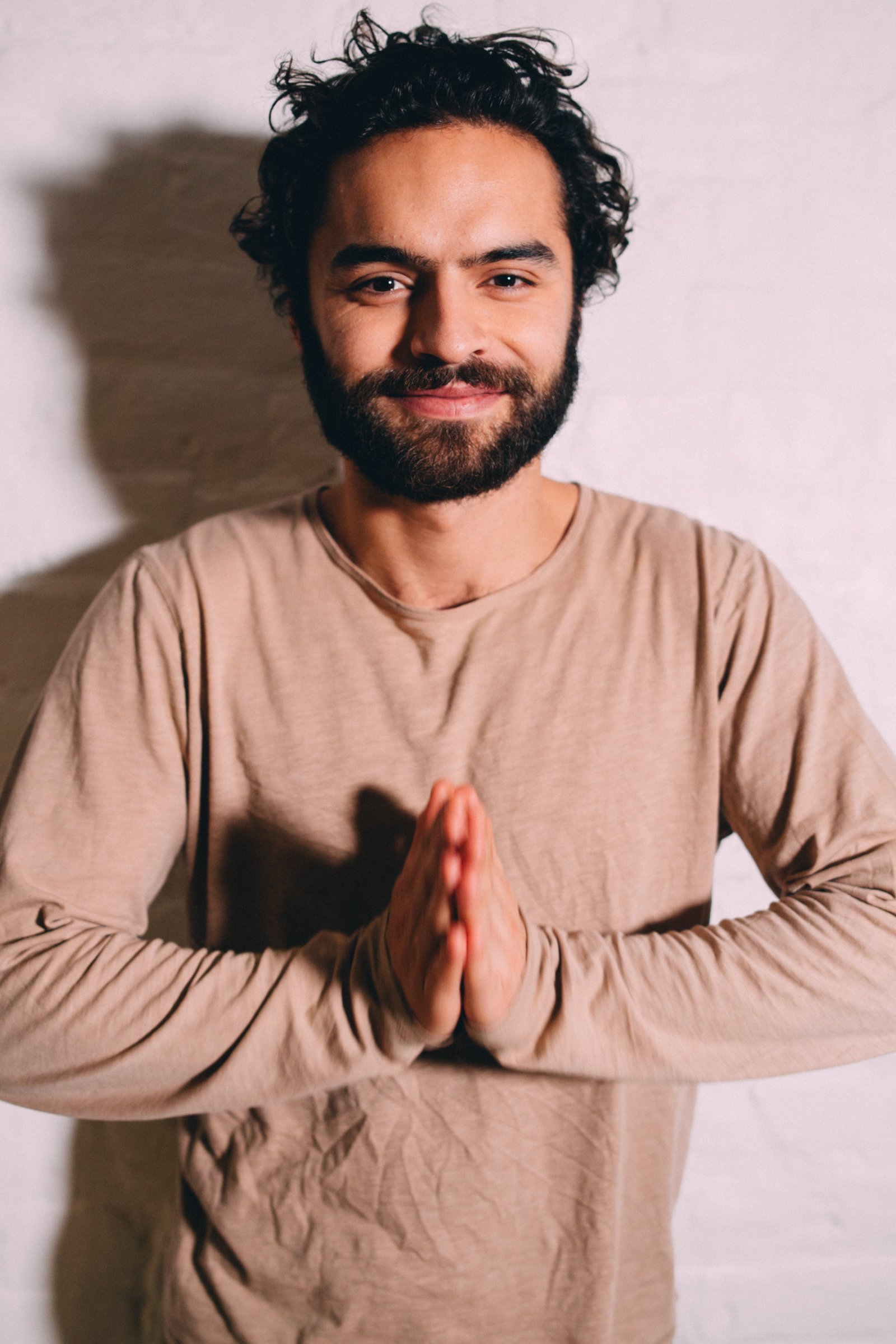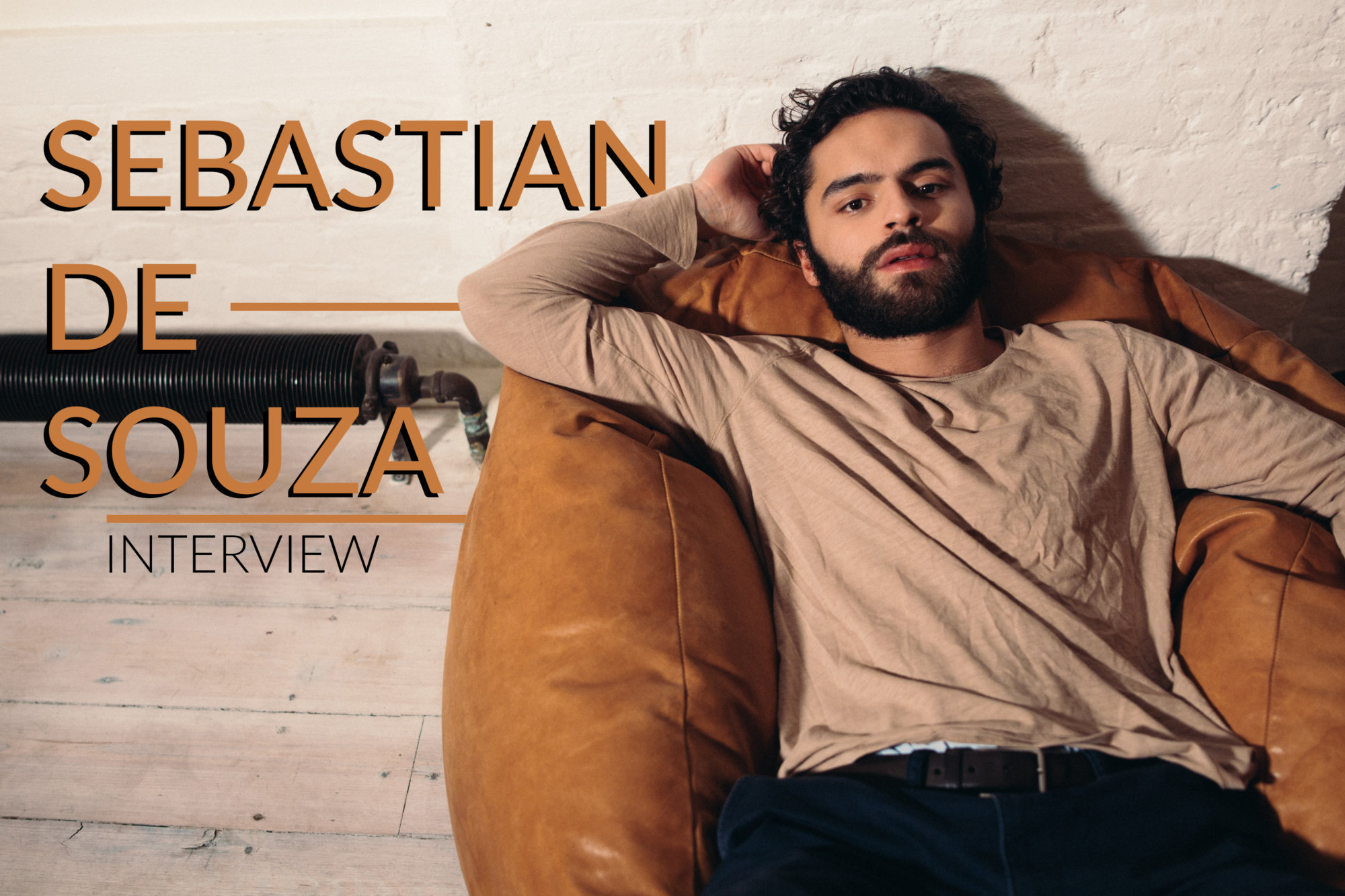In a cold evening in London, Sebastian de Souza talked with us about… No, let’s take a step back: first, he got photographed while playing ping pong, chatted about random topics, including his love for Italy and food, and shared a laugh. Then, he told us about his great passion for acting, even on stage, for writing, his thoughts about cinema and the ambitions of the young generations who want to be a part of this world. And, of course, about Sandro Botticelli and his love for art.
You listen to Sebastian and you think about his portrait of Botticelli, you laugh for one of his many jokes while getting emotional by recalling in your mind the final episode of “Medici: The Magnificent” and you comfort him by telling him that “no, he’s not talking too much.” Meanwhile, despite the unknown surrounding Botticelli, you realize how great the Italian painter was in talking, letting people get to him and making the world fall in love with his paintings, the Florence of the Renaissance and the Medici. It is not difficult then, to think about Giuliano and Lorenzo de Medici sharing some quality time with Sandro Botticelli.
Sebastian has a great passion for his work (both of actor and writer), a great will in testing himself and the knowledge that he can do even more, and even better, between a lunch composed by “primo, secondo, contorno” (first plate, second plate and side dish), a take and an empty page to fill. There is no metaphor better than this one to describe Sebastian: a script that is stuffed with lines day after day thanks to his will and his genuine personality.
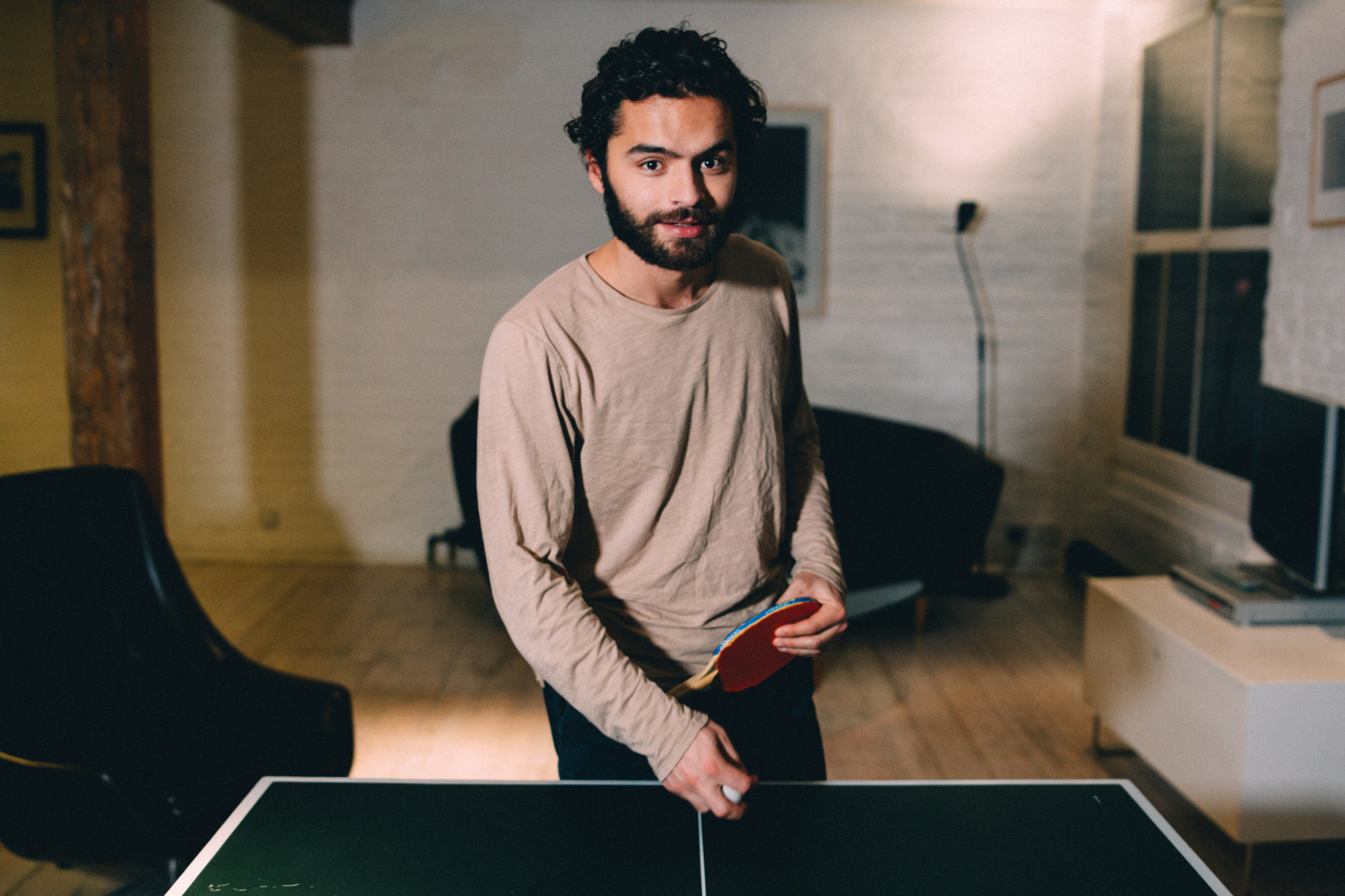
When did you discover your passion for acting?
_____
My passion for acting began when I was a very little boy and I read “The Wind in the Willows,” it’s a children story about animals in the woods, who all have extraordinary characters and go about and do things. Anyway, William Horwood then wrote a book that is called “Willows at Christmas,” it was about Ratty and Mole and Mr. Toad having Christmas together.
I read it, or my dad would read that to me, or we would do both things, and I adapted it as a play when I was eight, and it was terrible. But I wrote a play and invited all my friends to be a part of it. We had a little barn by our house, it was freezing cold in winter, and we had no light, no nothing, but all of my friends came, and it was really sweet, we had lunch, and we performed the play for our parents. I played Mr. Toad, who is this disastrously, kind of drunk and sort of horrific character who is always making mistakes and getting into trouble, but he’s very lovable. I guess that set the tone.
That made me want to act or made me want to be a part of a company of actors or a company of anything really. It made me want to take part in an artistic activity because it was a great feeling, and everyone seemed very happy.
I didn’t really act again until I went to school, they built a new theatre as soon as I arrived. When I arrived, they opened this theatre, and I had never really thought about theatre before. I’ve always wanted to be sort of Elton John until I was 13 and then I realized that it was never going to happen, but then this theatre opened. It was a beautiful proper theatre, no school has a theatre like that, but I was really lucky, I went to this fancy school, and it was amazing. I was cast as Puck in “A Midsummer Night’s Dream,” a Shakespeare play, and then I forever, since I was 13, wanted to be an actor.
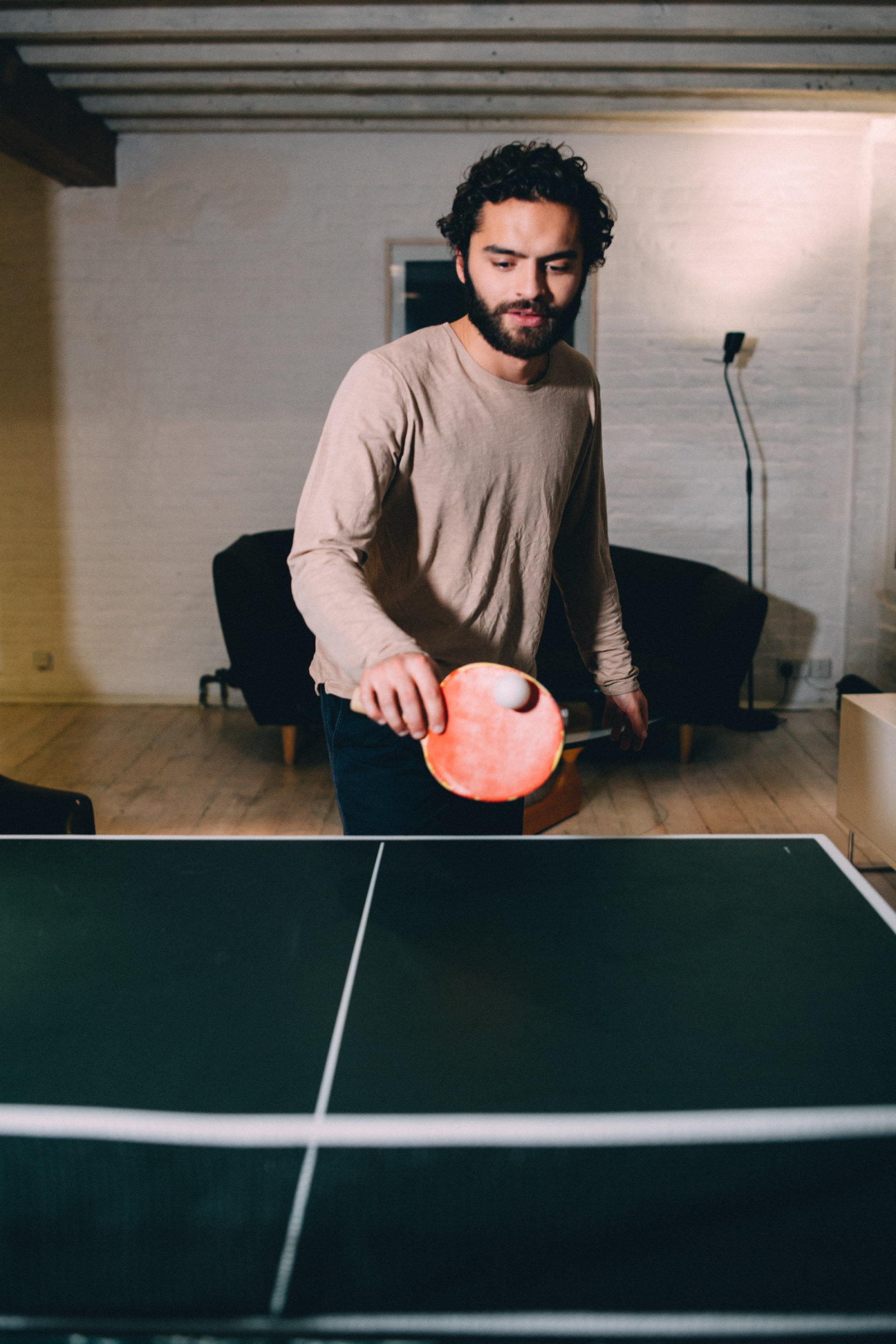
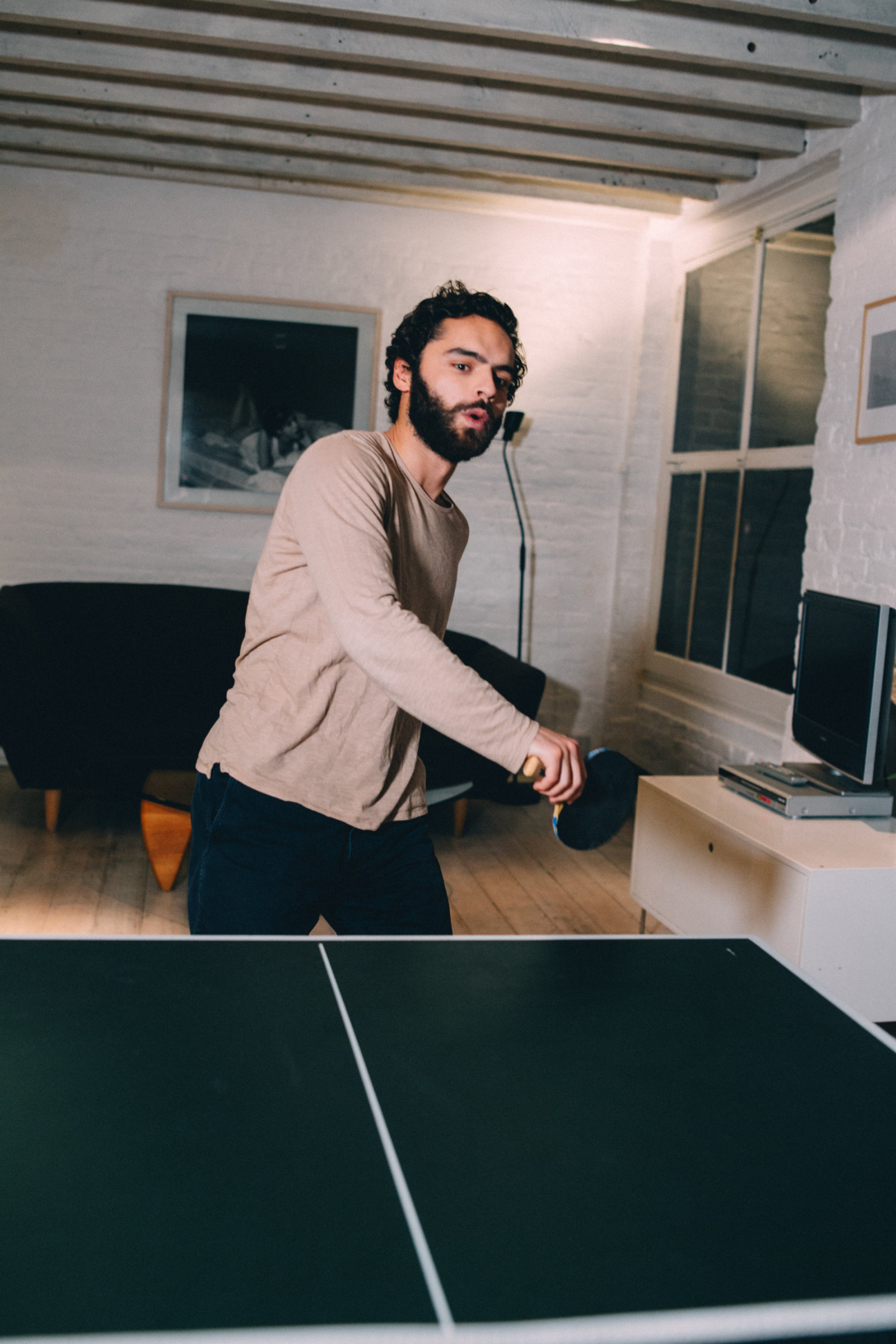
“It made me want to take part in an artistic activity because it was a great feeling, and everyone seemed very happy. ”
In the second season of “Medici: The Magnificent,” you play the famous painter Sandro Botticelli: what was your first reaction when you learned about the part? And what about the script?
_____
I was very pleased to be cast as Botticelli, but I didn’t realize until now, when it came out in Italy, how important the personality of Botticelli is to Italians, even though I had obviously read about the guy and learned something about him. I’m not Zucchero or Terence Hill, but you walk through Volterra or small towns, and people are like “Maestro Botticelli, Maestro Botticelli!” People, and don’t tell Daniel Sherman about that, they don’t care about Lorenzo de Medici, they only seem to care about Botticelli! [laughs]
And I realized why these paintings that he painted mean so much to Italians and it’s like how football means so much to Italians, how food means – the culture that you have given to the world. And so, I realize only now this is personal significance, on a personal level. I was very excited to be Botticelli, obviously, and my reaction to the script was very positive. I think that Frank [Spotnitz] is a brilliant writer and I think that it is very brilliantly put together show because it’s quite hard to write about De Medici. I did this other thing with “The Borgias,” they were rapists, they were murderers, and that’s exciting screenwriting-wise.
The Medici were nice and they were basically bankers, and they paid for lots of brilliant art and buildings, but the story of “Medici” is much more PG13 than “The Borgias,” so as a result of that I think that Frank, and all the other writers who have contributed to this, have done an amazing job to bring all the drama out of this family.
“People, and don’t tell Daniel Sherman about that, they don’t care about Lorenzo de Medici, they only seem to care about Botticelli!”
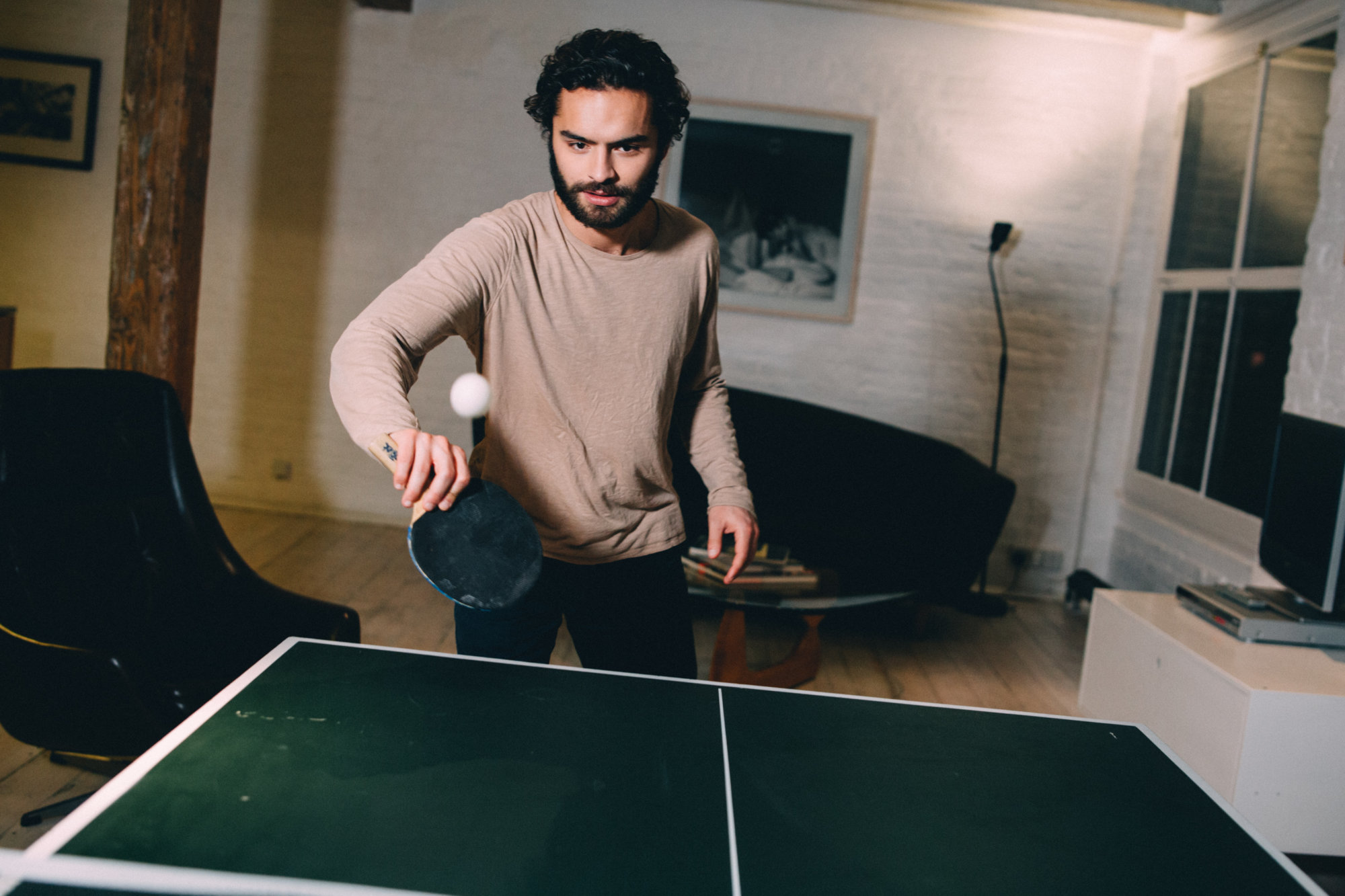
Yes, we can totally talk about drama in the last episode! It shows many of the bad things they were involved in, politically speaking; and maybe, when we study History in school we don’t really find out about that, so it was very interesting.
_____
It is interesting! And I hope people, and kids – because I know kids who like to watch the show – who are studying the Medici history and are in Italian history and art history, should understand that this is an interpretation. I think that’s what makes things even more exciting, because the previous note is, “we don’t know what happened within the four walls of the Palazzo Medici, or what the conversations were.”
So, I think that Frank and James [Dormer] and Nicholas [Meyer] and all the people who wrote it are piecing together a puzzle finding out how it would feel on a personal level to be involved in such world. Because at the same time what’s interesting is that, presumably, they would’ve been aware of the fact that they were hugely noble, important and powerful people, but how could they possibly be aware of their cultural significance for five hundred or four hundred years later?
How was your first approach to the character and how did you expand his personality?
_____
The first thing I did was reading. Not much is known about Botticelli, the man. We have, I think, one picture of him, one representation which ironically and I remind all the people who very sweetly cast me as Botticelli that they’re completely mad because the depiction of Botticelli is blond and without a beard. I’d say you Italians love a beard and brown hair, but I’m not sure how true that was. Botticelli is turning in his grave right now. [laughs]
But I read about him, but you really read just about his art and about his process, who he taught and who he was taught by and who he inspired, so I didn’t really have a lot to go with in terms of who he was on a personal level. I went back to what it was like to live in Florence in the 15th Century, what it would have been like to be an artist and where artist sat in social rankings, how much it meant to be [an artist]. And I tried to think about what it would’ve been like because he was essentially an orphan and kind of brought into this extraordinarily rich and noble powerful family. What that would’ve been like and what that dynamic would’ve meant to him on a personal level and try to think about how I would feel if I was adopted by a family in the same way.
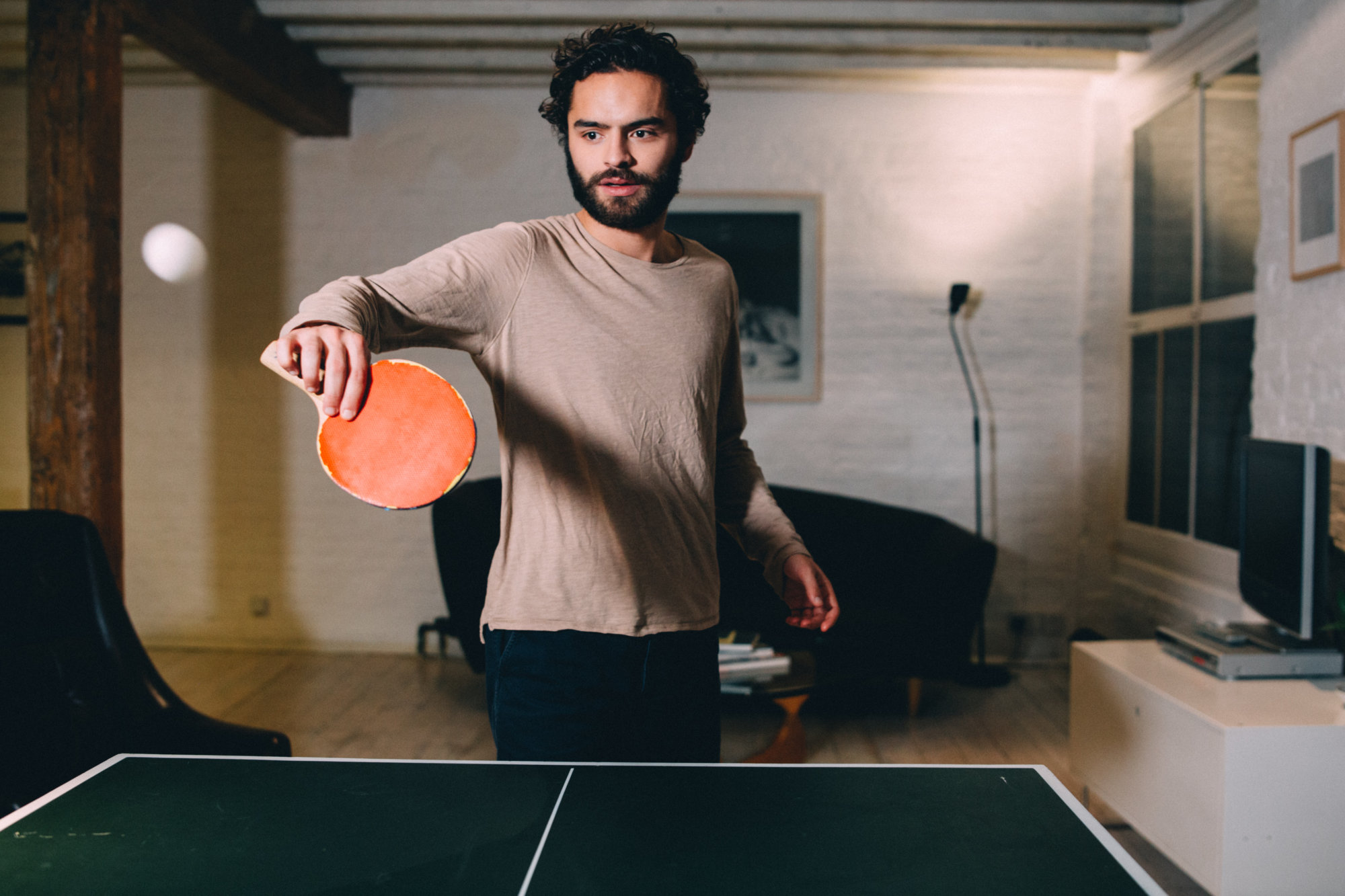
“I tried to think about what it would’ve been like because he was essentially an orphan and kind of brought into this extraordinarily rich and noble powerful family.”
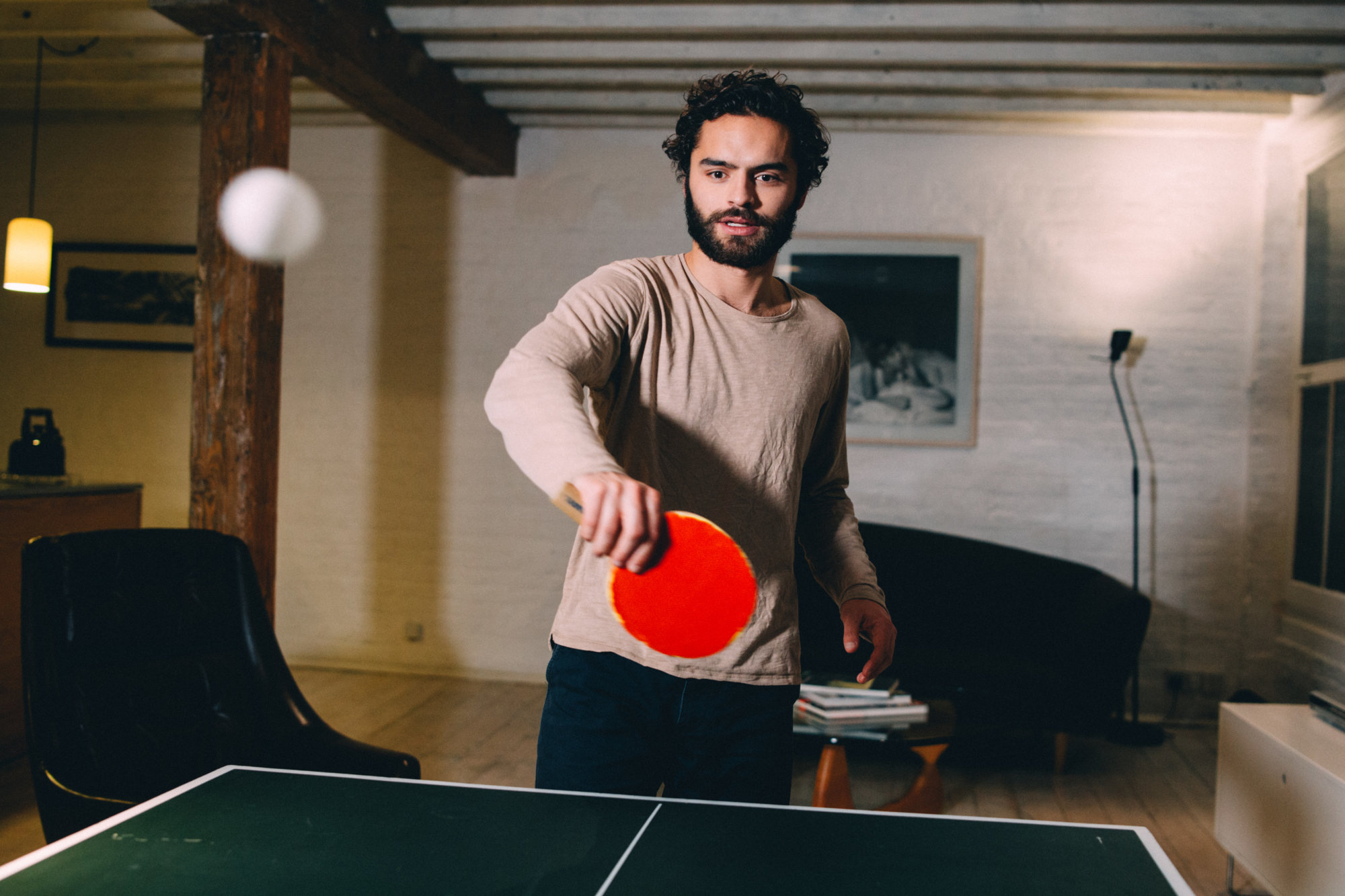
Did you have the opportunity to see the work of Botticelli?
_____
Yes, I did! I had lived in Florence for six months, not for the part but previously, so I had been to the Uffizi a few times and I had seen the “Primavera,” “The Birth of Venus” and all the extraordinary paintings before, and I did go back but only midway through the series. It’s mad actually when you go in that room – it’s crazy, those paintings were painted five hundred years ago.
You’re overwhelmed by them.
_____
It’s really intense in Italy the love for Botticelli. Don’t you agree?
Totally. I think Sandro Botticelli is one of the greatest that we’ve had.
_____
I have this feeling, and it might just be my ego. Of course, there were these significant Italian painters before him, but I feel like Da Vinci was this genius of geniuses when it comes to art, engineering, mechanic, everything, but it feels like Botticelli was one of the last painters to really hold on to that idea of glorifying God. And in being such a Catholic Country like Italy, I think that matters to people in some way, that he was holding onto that.
We can talk about this with Da Vinci when Da Vinci is played by someone else; we can have that conversation then. [laughs]
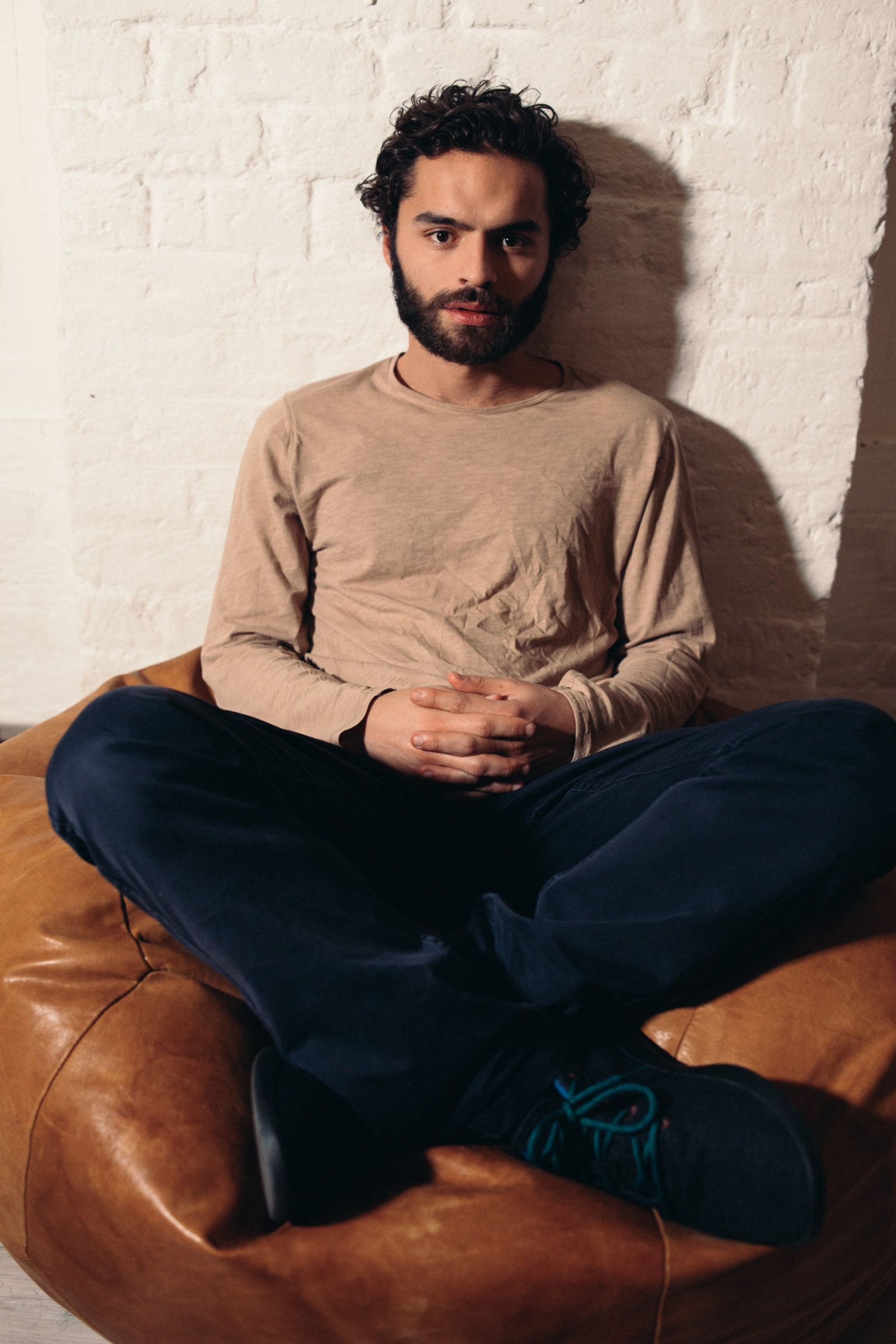
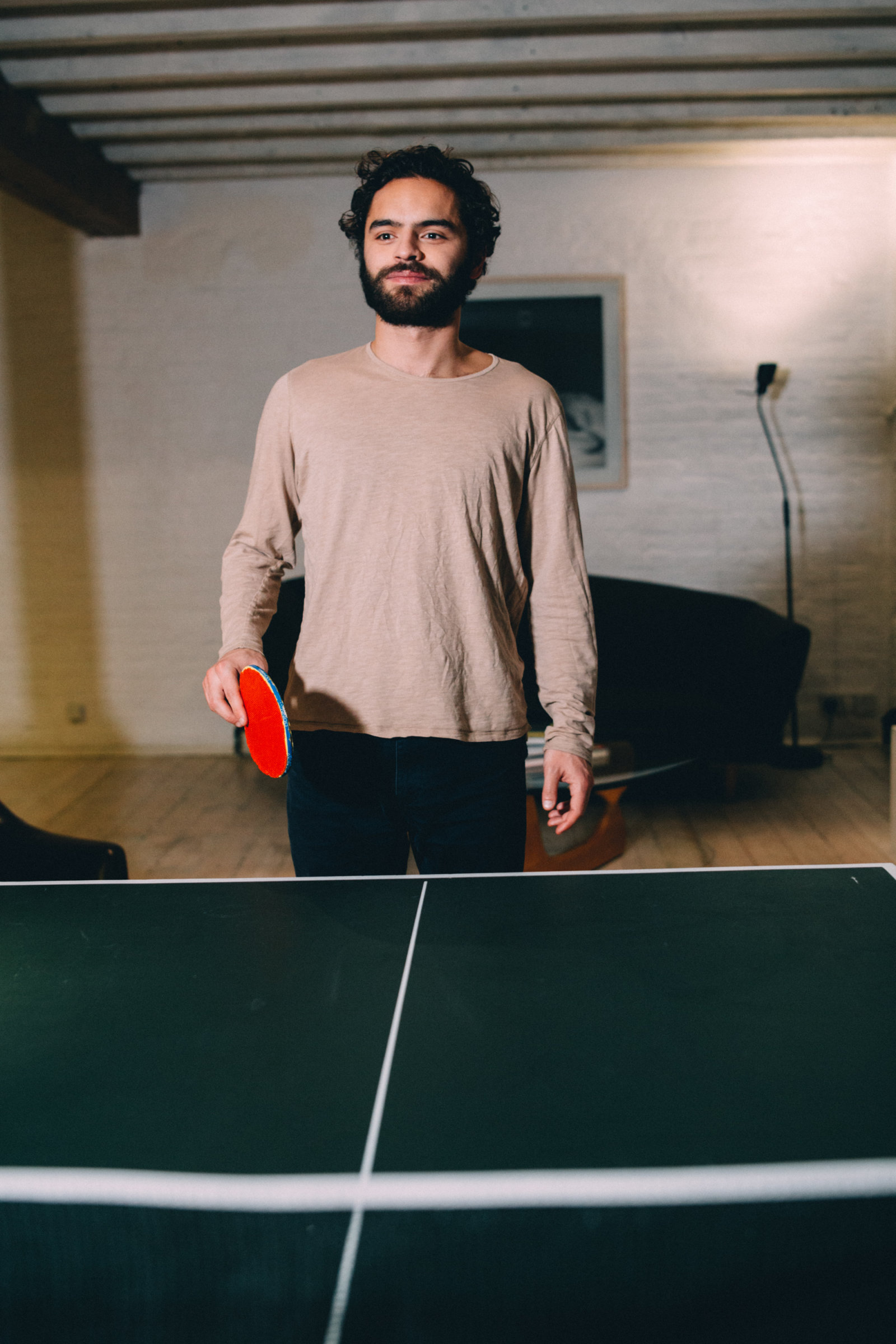
“It feels like Botticelli was one of the last painters to really hold on to that idea of glorifying God.”
Do you have a particular interest in art? Do you have maybe a favorite painter and/or a favorite painting?
_____
I do love art. And I love it more having played Botticelli. I have to say, it’s very interesting, I am a huge Andy Warhol fan and I especially love his take on Da Vinci’s “The Last Supper” that I went to see it when I was in New York City before it was sold.
It was during the time that I was involved in “The Medici,” and I was really struck by it because, all through thinking about Botticelli and the Renaissance, I constantly had to think about and remind myself that we were all thinking about rebirth and rethinking things. It was about reimagining the same thing, because in essence, even then the originality was going from this to this, the original idea with every stroke of the paintbrush it was getting smaller. The opportunity of reimagining an idea as Warhol did to the “The Last Supper” struck me. So, I love all painters, but that was a particular painter I really liked.
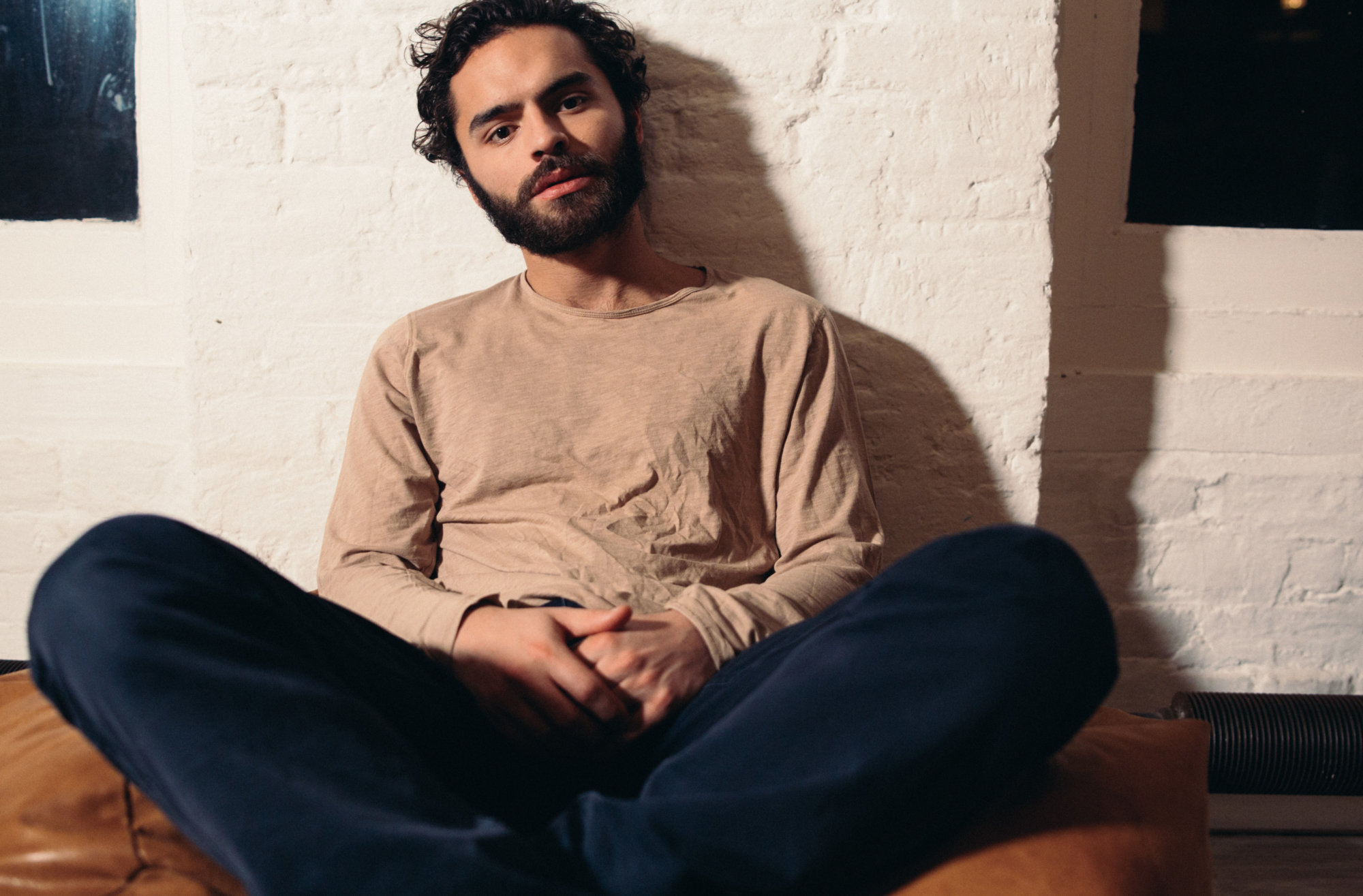
“Even then the originality was going from this to this, the original idea with every stroke of the paintbrush it was getting smaller. ”
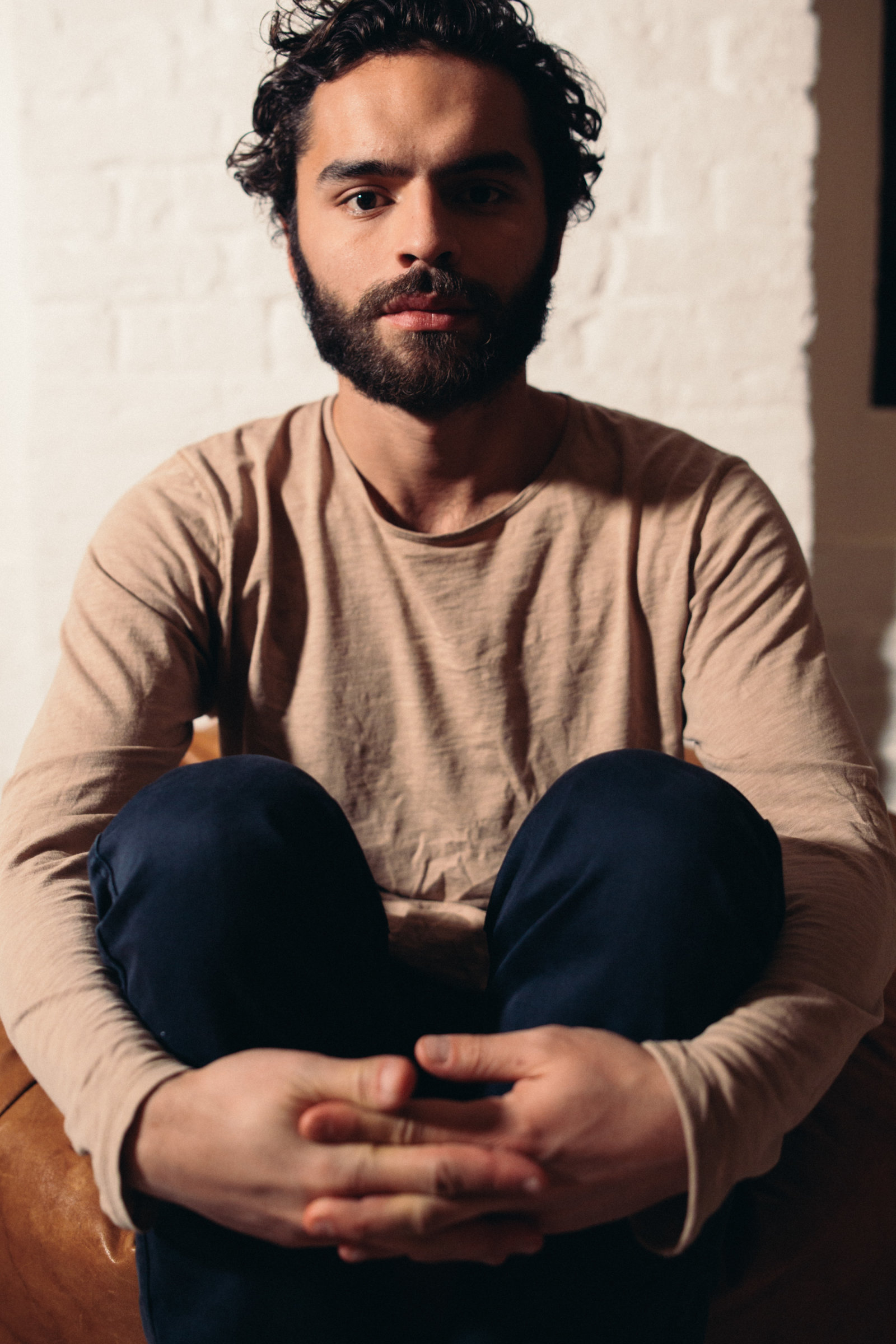
What are the main differences between you and Sandro Botticelli? Did you find any similarities?
_____
Because not much is known about who he was as a person, I would have to say that whoever Sandro Botticelli is in Rai 1’s “The Medici” he is probably quite close to who I am, on some level. But I do really connect with him – throughout my life, I have been very lucky to be part of lots of different families, kind of being-semi adopted. I have a wonderful family at home, my blood family, but I’ve lived in lots of places, and I’ve been adopted by other people, and I recognize that as a wonderful and amazing thing: being with someone you don’t know and doing things that maybe others don’t understand, and for a family or your friends to take you in, to support you and to love you. I connected with him on that level.
You played Alfonso of Aragon in “The Borgias” and Botticelli in “Medici: The Magnificent:” both set in Italian Renaissance, what were the main differences for you in playing the two characters?
_____
There seems to be a pattern! I’m a bit worried; I’m not ever going to get out of that pattern. [laughs] No, I’m very lucky and very pleased. Both were adopted by a family, one was loved and supported and celebrated by the family, Botticelli, and the other was eventually murdered by the family that adopted him. So that’s the main difference.
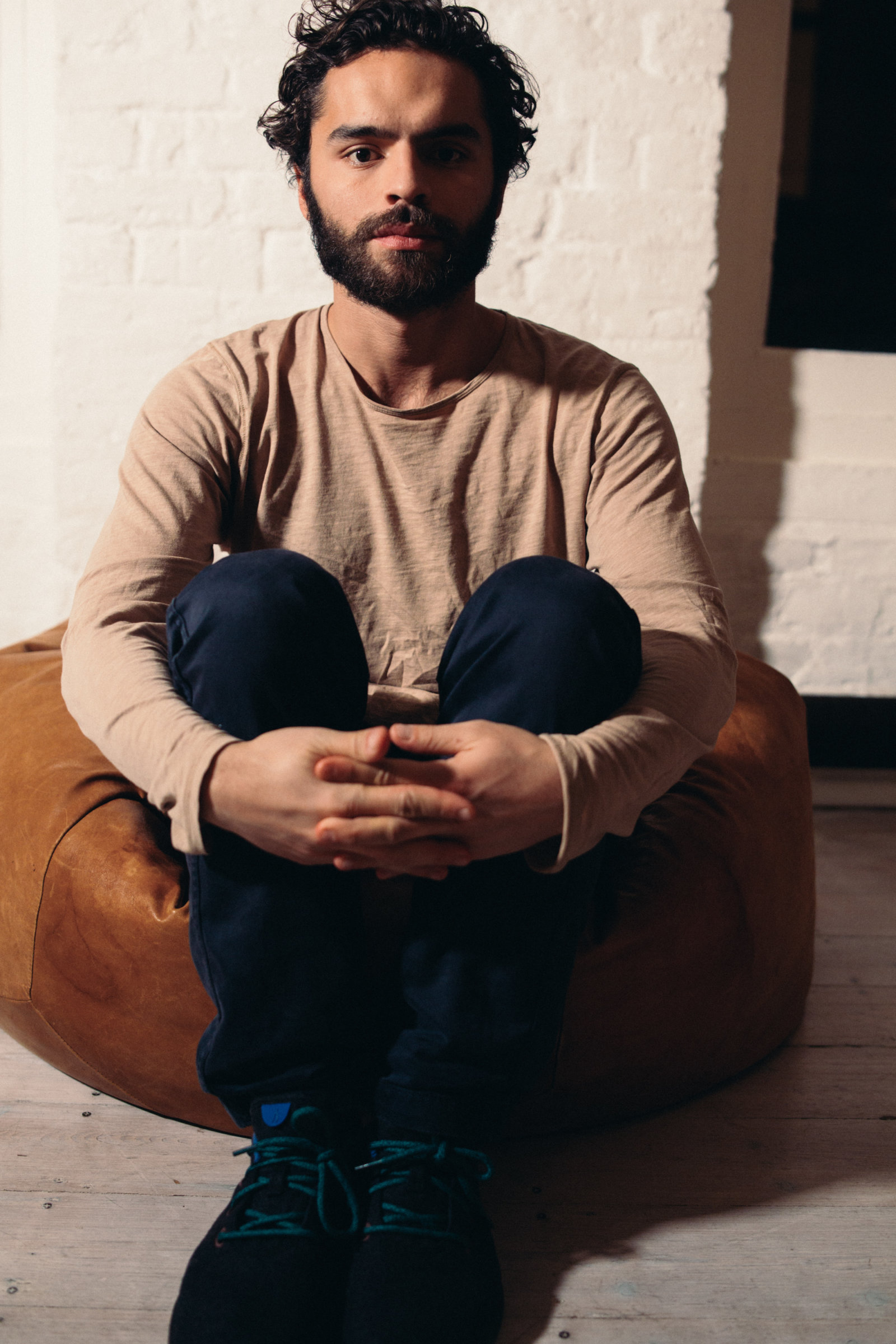
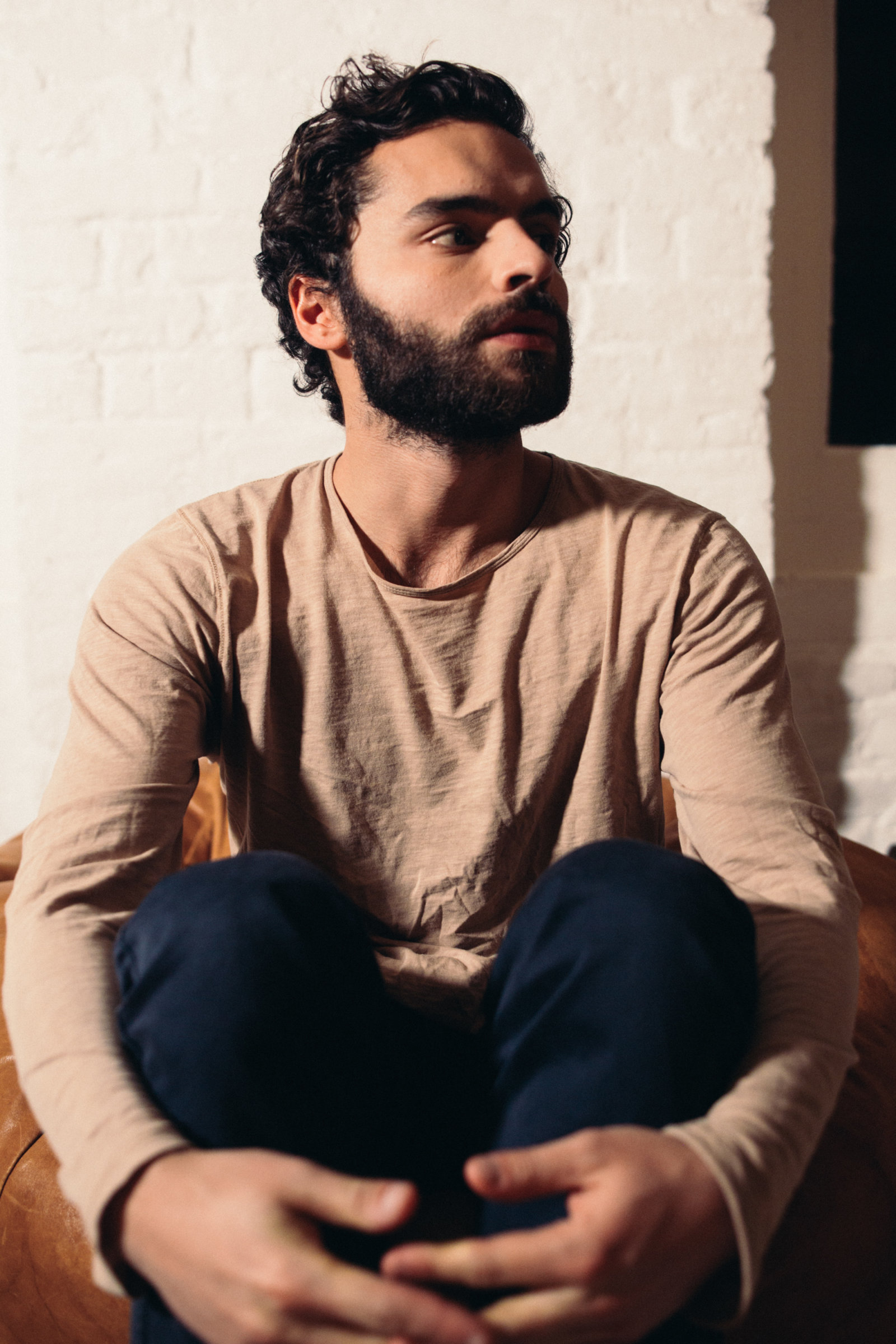
“But I do really connect with him – throughout my life, I have been very lucky to be part of lots of different families, kind of being-semi adopted.”
How was acting in Italy for you? Did you enjoy our Country?
_____
I love your Country. I really do. I have to admit one thing though: I have now spent two years on and off with “The Medici” and until I arrived in Italy to work all I wanted to do was to live in Italy and eat pasta for the rest of my life, but now I’m not going to eat pasta for another year at least. You guys, it’s extraordinary – you’re born with this remarkable metabolism, that you can just wake up and eat “cornetti” (croissants) and “biscotti” (cookies), then a little something in the morning, at eleven, “pasticcini” (pastries), and then pasta and pizza, and “primo, secondo e contorno” (first course, second course and side dish). [laughs]
I mean, stop already! Fucking hell, it’s crazy! I was ballooning! I love Italy, I love everything about it, but what I know now is that you are all liars. Us English people come to Italy, and we eat like we think you eat, so we have “primo, secondo e dolce” for every meal and you guys are like, “look at these stupid English people, how they eat” while having a “mezza porzione” (a small dish) and that’s it. We’re just getting fatter and fatter. But I’ve greatly enjoyed it.
You should go eat at a grandmother’s house! They’re always complaining about how skinny you look.
_____
Yes, always! But you guys live in Milan, and it’s not the same. There you can go and have a salad or whatever. Actually, Botticelli had this one costume that is like a dress, and we had this joke because I had become obsessed with grandparents from Puglia who would always be doing orecchiette at the side of the road, and so I would be “Nonna Botticelli” in a huge dress. Before they put the belt on the dress, I would be like, “Do you want some orecchiette from Nonna Botticelli?”
You should open a restaurant and call it “Nonna Botticelli!”
_____
You’re right, I should. That’s a good idea; I will stay well away from Italian Food for a long time. Botticelli’s time after “The Medici,” he was making orecchiette for fifty years before he died.
“Do you want some orecchiette from Nonna Botticelli?”
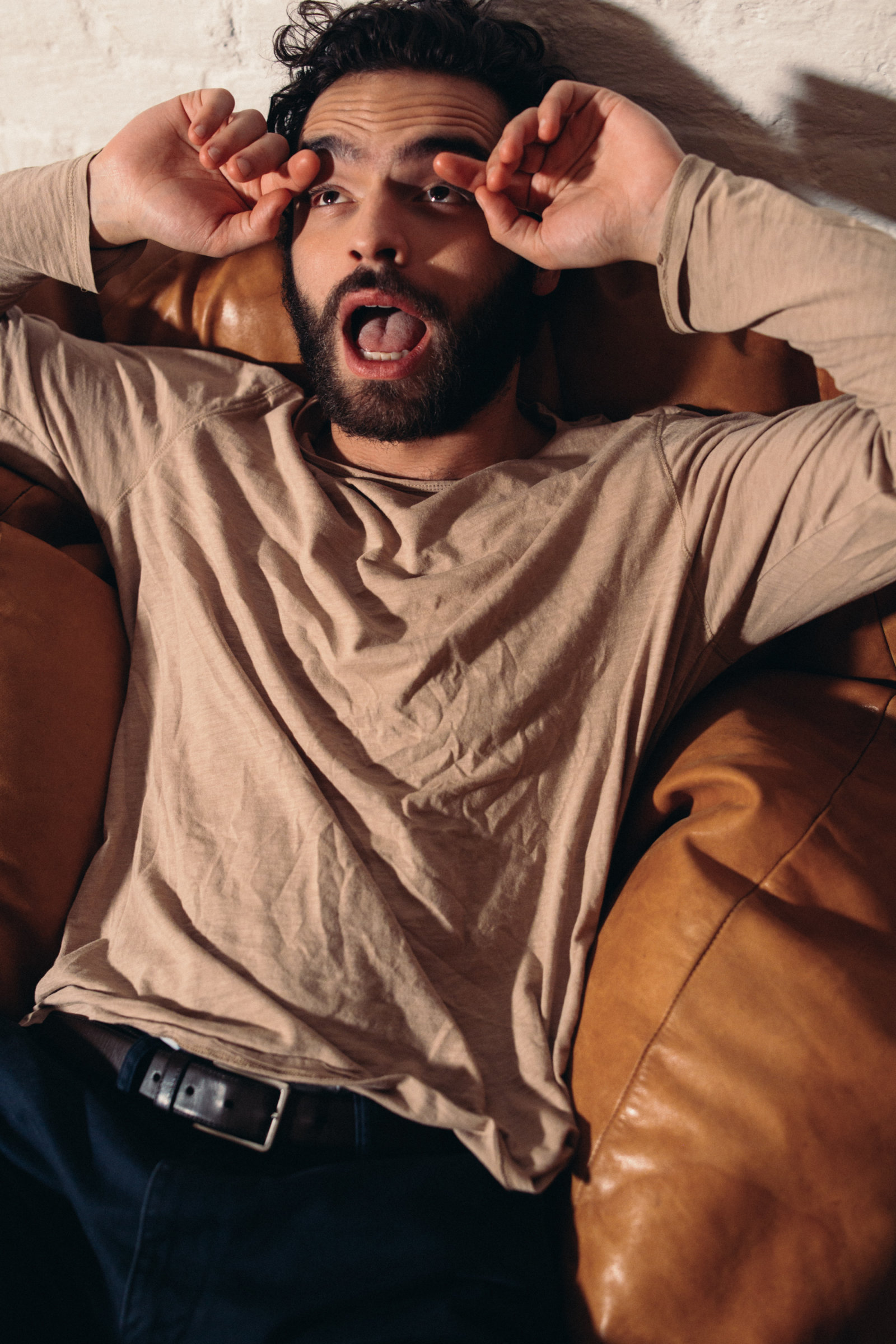
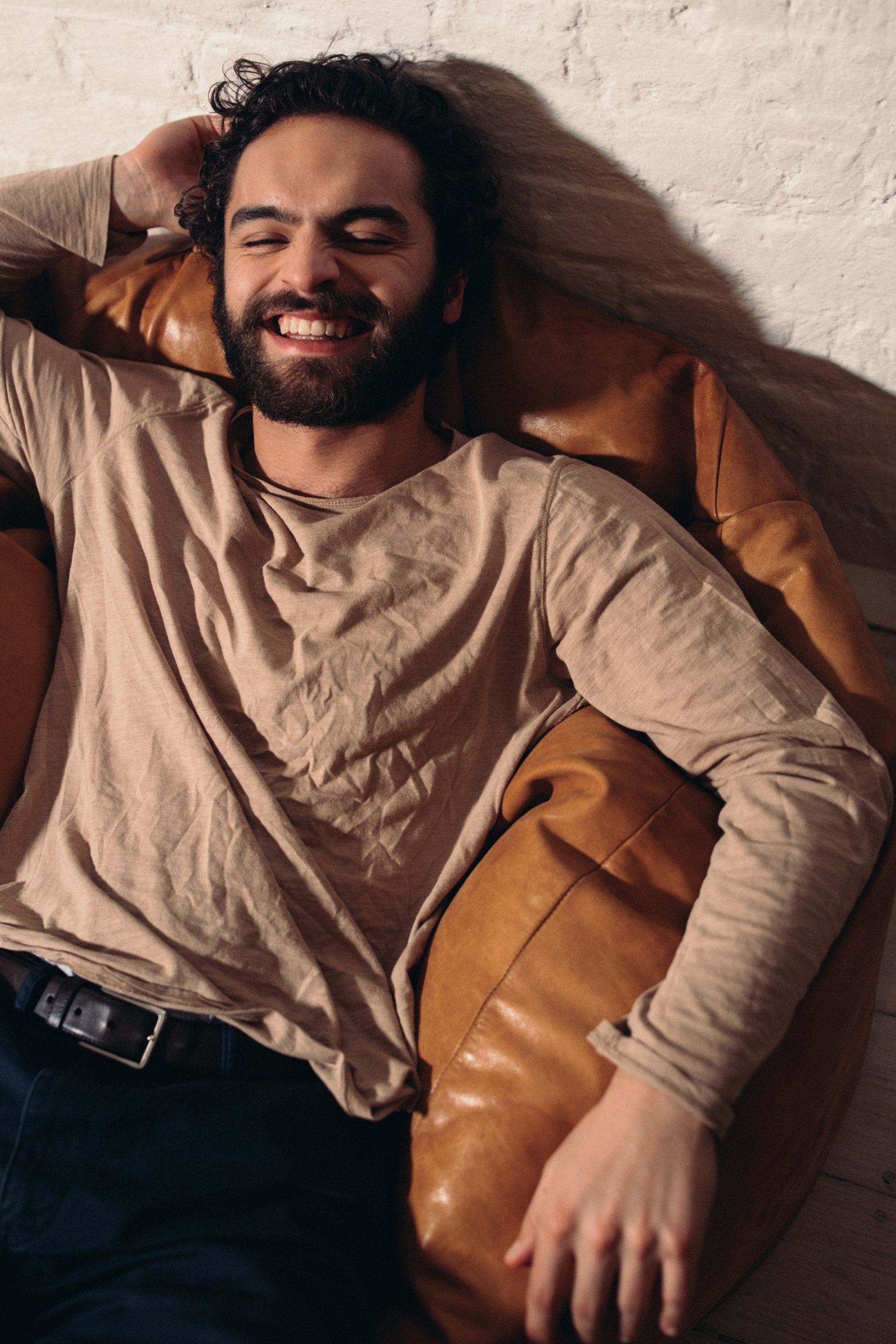
You’re also a screenwriter, is there a project you would like to write in the future?
_____
There are millions.
What are the most striking differences, for you, in front of the camera and with the typewriter? What kind of emotions do they inspire in you?
_____
Well, I love them both equally but one is very lonely, and one is extremely collaborative. But both of them joyously require something but it’s also what makes it difficult to do my job: if you’re an actor you require a script, and a director and a camera and a producer and someone to give you costumes. If you are a writer, you need director and actors. What I’ve always been jealous of my family who are all musicians is the fact that as a musician if you have your guitar and your voice, you can go and sing. You can do it, as an actor, but it’s more difficult.
I find writing really lonely and hard but I absolutely love creating new universes and worlds, that is my great passion. Maybe it’s because I feel very uncomfortable in this world, but I feel very excited by the blank page where a lot of people feel daunted by. I’m sort of a fraud, I want to get to the end, I want to get it out, and I want someone to do it, and something to happen with it, to see someone read the book, or put it on a play, and so on.
I know a lot of writers who are satisfied sitting at the page and struggling. As an actor what’s really nice is that I can go and write, I am always doing that even when I’m acting, but when I act, I have that thing when I can just walk on set, and someone says, “stand here, say this, wear this” and that I find really liberating. There are a lot of actors who would read that answer and say, “he is a fucking fraud because acting is so much more than that!” But it’s great fun for me.

“I find writing really lonely and hard but I absolutely love creating new universes and worlds, that is my great passion.”


“I’m sort of a fraud, I want to get to the end, I want to get it out, and I want someone to do it.”
What kind of stories do you like to write?
_____
At the moment I have two or three. I have a book, the first of three, which is a sort of sci-fi novel that’s set in 2078, while it is set also in 2018, but it’s very difficult not to spoil the story without telling you how that works, and that was a novel, but that’s also what I mean by universes, new worlds.
I like to write for kids, I wrote a film about young people called “Kids in Love,” and I have a play that’s going to go on, which is sort of political, but really anything.
And it’s not “wow” nor I know if any of them are any good – but here’s another thing about being an actor, you are constantly waiting for your agent to ring you, constantly waiting to audition, constantly waiting on other people. As a writer, I could just do it, and it requires me to get up in the morning and write and then take it to the producers and say, “you gotta do this.” It’s all coming from me, then.
I get so anxious: a lot of actors are good at it, they sit, and they go to the gym, and they read, but I have to be doing something. It’s like a therapy.
You are a singer, a writer, an actor, also on stage, and a patron of the arts: where do you personally find art and inspiration in real life?
_____
You’re very kind to say that I’m a singer, I’m not really. I would love to be Elton John, but I’m not really. As a patron of the arts, I would love to be, I try hard and would love to do much more to widen the talent funnel because I think we have this business that is like a funnel, and there are so many creative, talented, extraordinary people at the top but the funnel only a few to come out, and I believe that is a shitty, antiquated, stupid system. In a world of the Internet and where we are now with applications and connectivity and all of these things, it’s stupid that that’s the case. And I think things are going to be shaken up. This gives you the freedom to talk to anyone you want to talk to; you can lift up people that need to be lifted up.
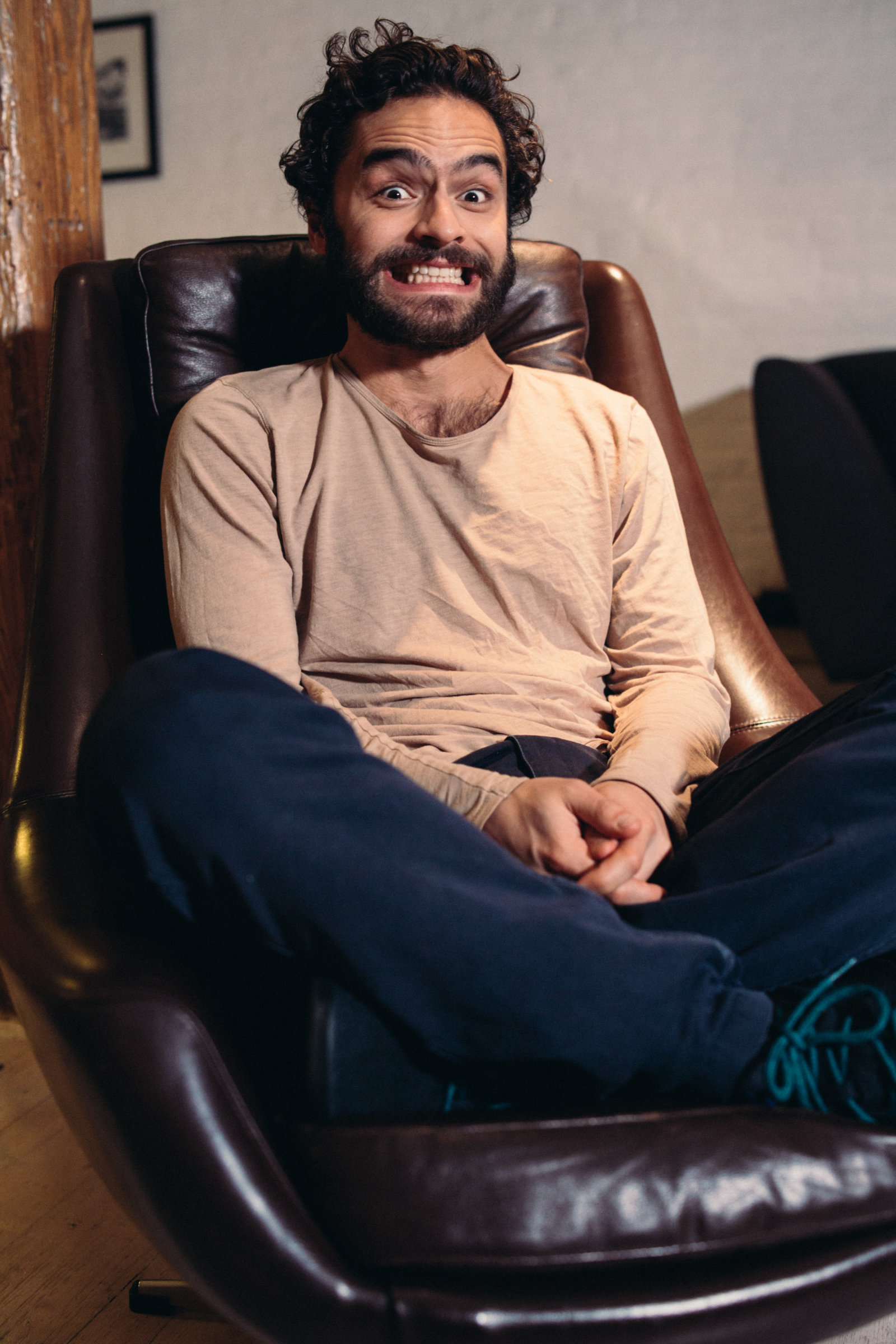
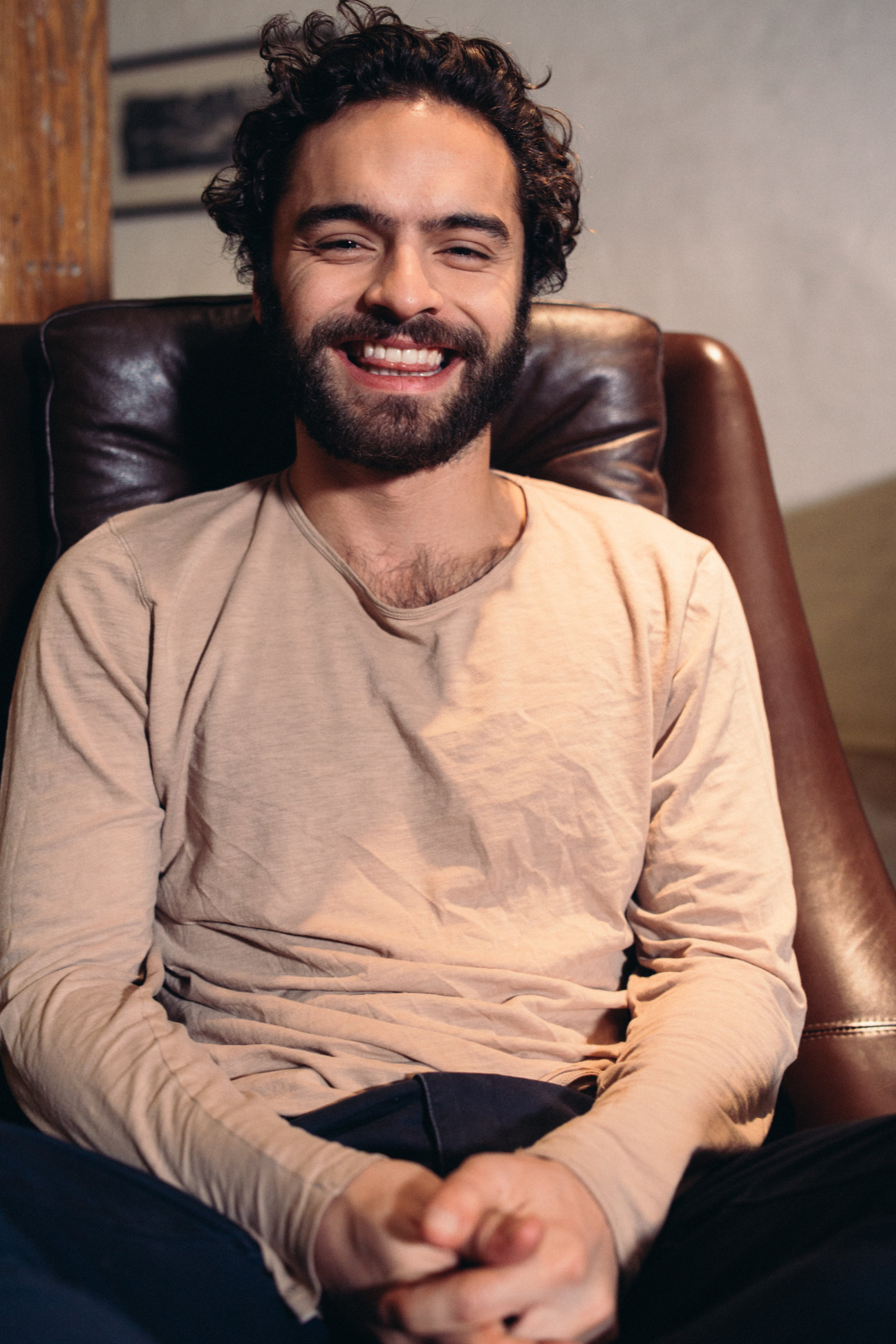
“I think we have this business that is like a funnel, and there are so many creative, talented, extraordinary people at the top…”
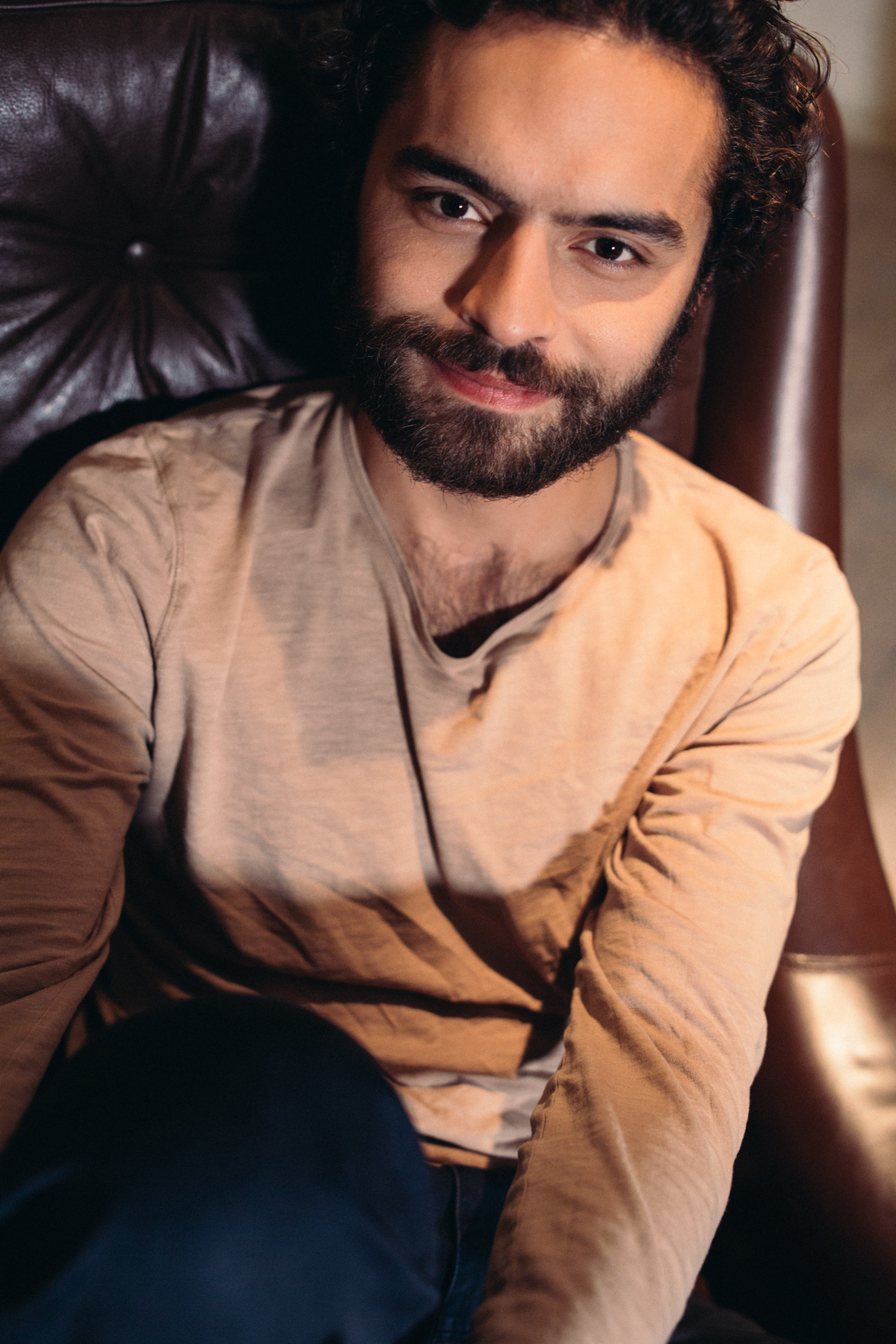
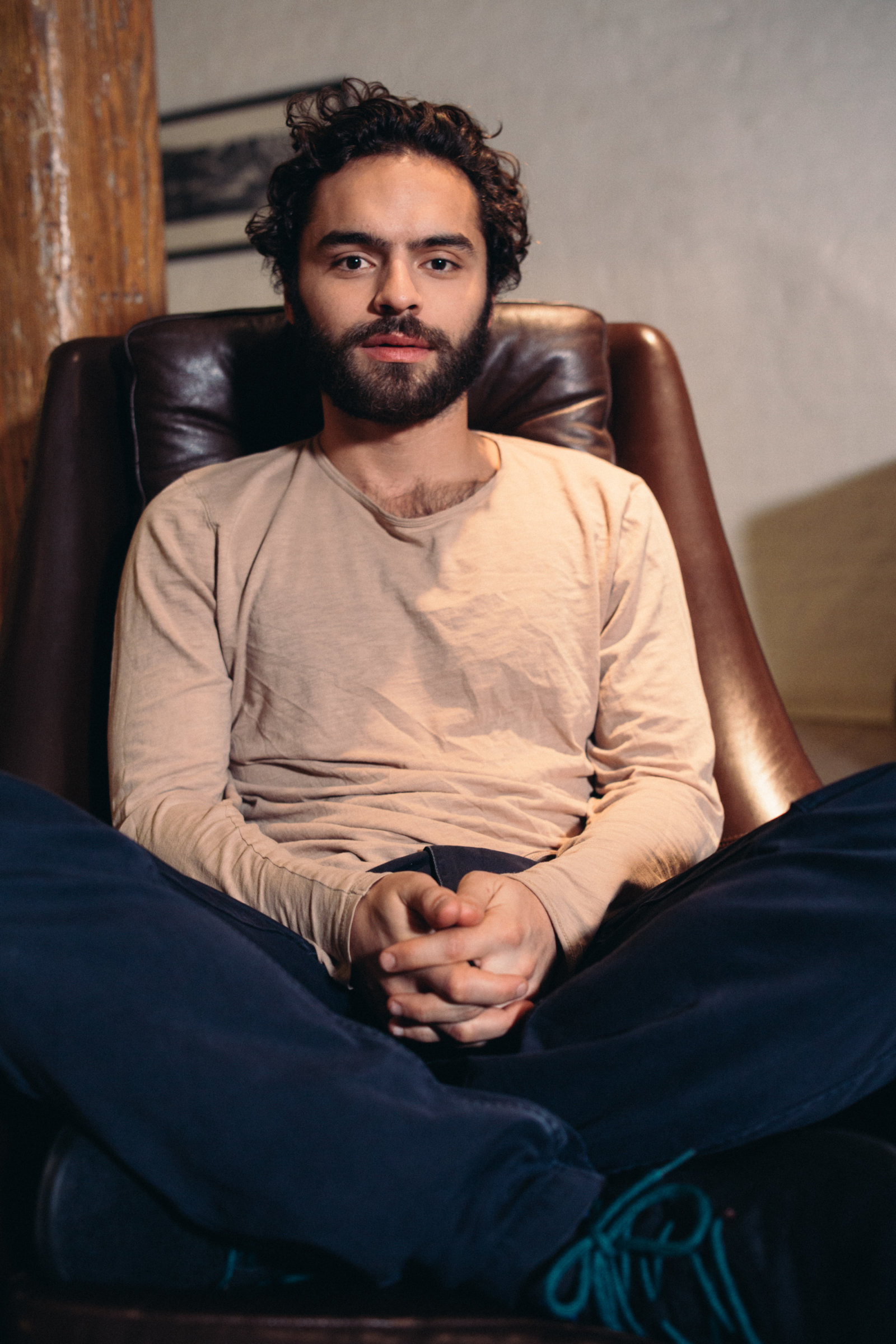
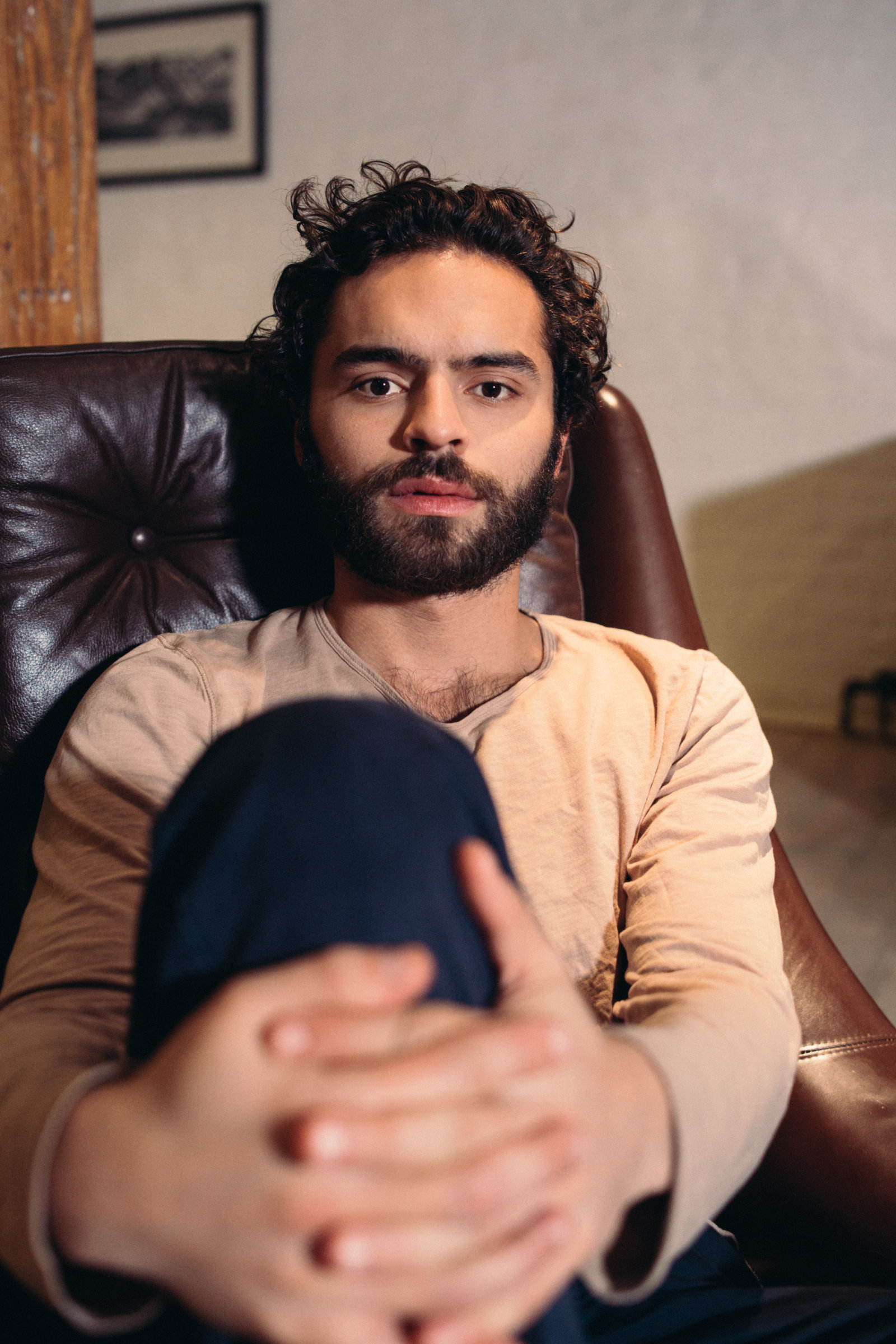
“…but the funnel only a few to come out, and I believe that is a shitty, antiquated, stupid system.”
What’s the most important thing you try to pass on younger generations with your work, both on stage and in front of the camera?
_____
I think, if I could ever pass anything on, if anyone asks me and very rarely people ask me, “I want to be an actor” or, “I want to be a writer, I want to do this, would you pass my work or what should I do?” is: “do it.” The only thing you could do is do it. Because what I realized is that, let’s say you know Steven Spielberg and you’re Steven Spielberg’s son’s best friend: the only way that you are going to work with Steven Spielberg is not asking him. You’re not going to work with Spielberg if you’re sitting at dinner with him and say, “Steven, can I have a job please?”.
What Steven I think would say to you is, “have you done anything? Have you gone out and written a script? Or have you gone out and put a play on, or have you tried to do a short film with your friends?” And you would turn around, because you are a lazy kid like we all are, and you would say, “no.” And Steven would say, “well, come back to me when you have. Not when you’ve something to show me but when you’ve proven to me that you’re willing to get it on your own.”
So, the only thing I can ever say to people is “just do it.” It might never happen, but the only way to find out is just to do it. Fuck the agents and the casting directors: a lot of who really want to find brilliant talent, but fuck the guys who don’t want to, who only want to work with a small, elite group of people. Go and do it yourselves. Now you have a cellphone, and you could direct a whole movie shot with this, so just do it! And yes, it’s difficult, but if it weren’t difficult, it wouldn’t be worth it.
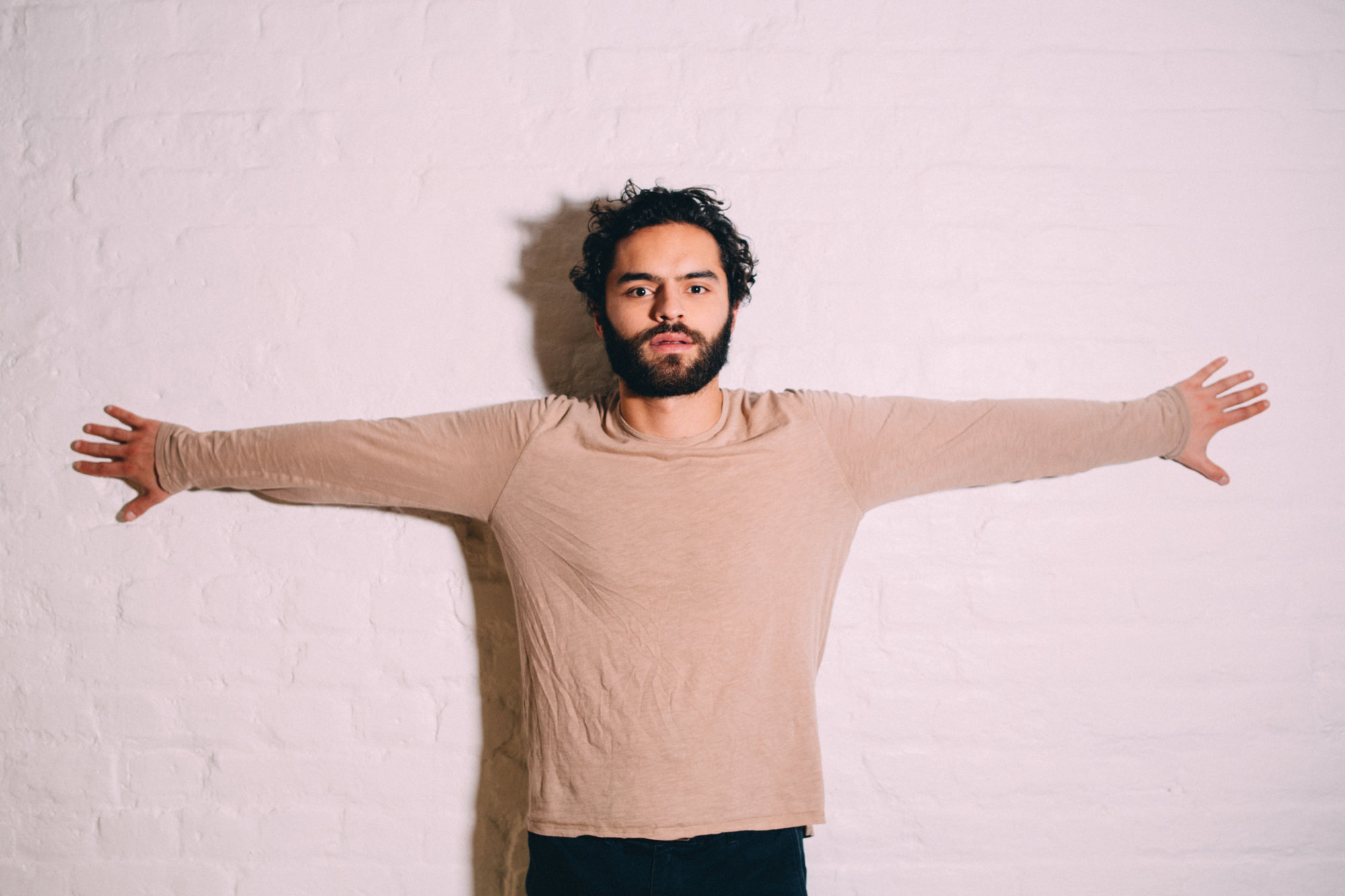
“So, the only thing I can ever say to people is ‘just do it.’ It might never happen, but the only way to find out is just to do it.”
What’s next for you?
_____
Dinner! [laughs] I’ve got to finish this book, and I hope with all God’s grace it will be out next year, and I’ve got various writing projects. I’m taking some time to focus on them. And whatever Renaissance project is next for me!
Choose your favorite:
Giuliano or Lorenzo de Medici?
Impossible! I can’t.
La “Primavera” or la “Nascita di Venere” [The Birth of Venus]?
La “Primavera.”
Sandro Botticelli or Alfonso of Aragon?
Sandro Botticelli. Come on, he’s more interesting.
Florence or Rome?
I really can’t give a quick answer to that: I lived in Florence, and I absolutely love it, it’s so beautiful, but I like Rome. There’s so much to see. I think Rome, probably.
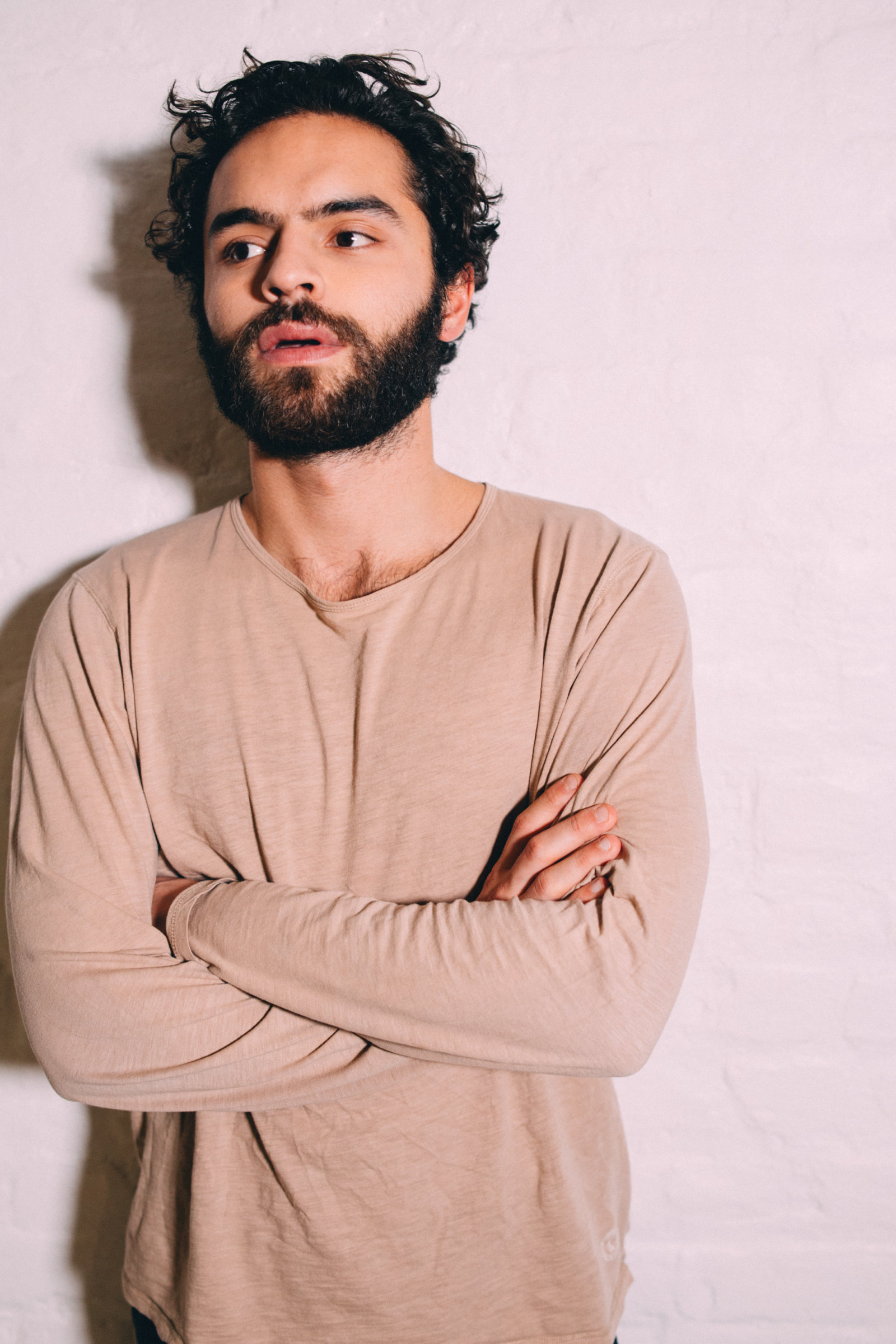
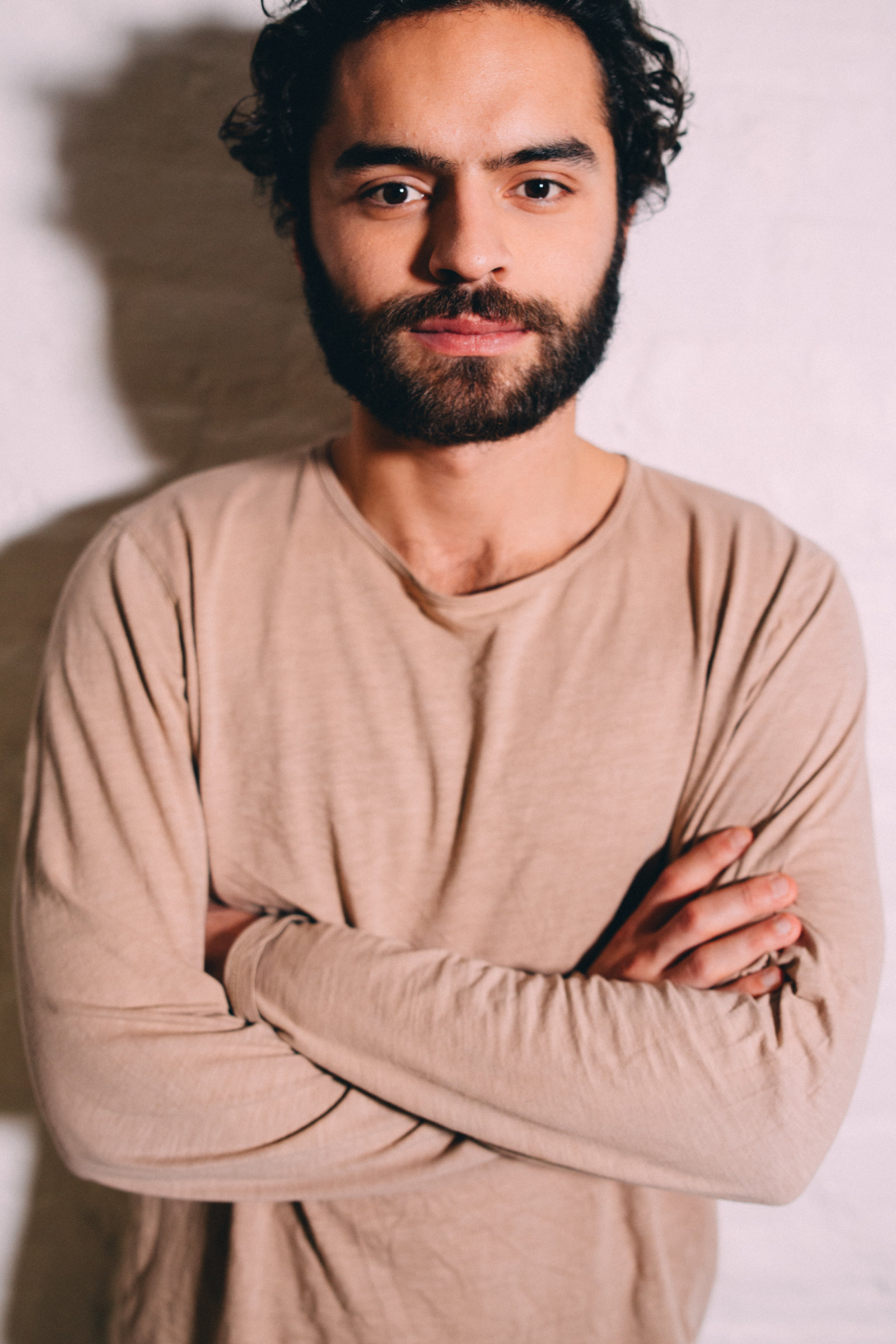
What’s your must-have on set?
_____
Jokes. Because it’s a long day, you know.
What’s your favorite accent?
_____
Honestly, any accent but my own, because I’m very posh and I hate it. I am so aware of it. So I speak a little Italian, because it’s the language of love but also because I just hate listening to my own voice. Or Irish, or American, anything but mine.

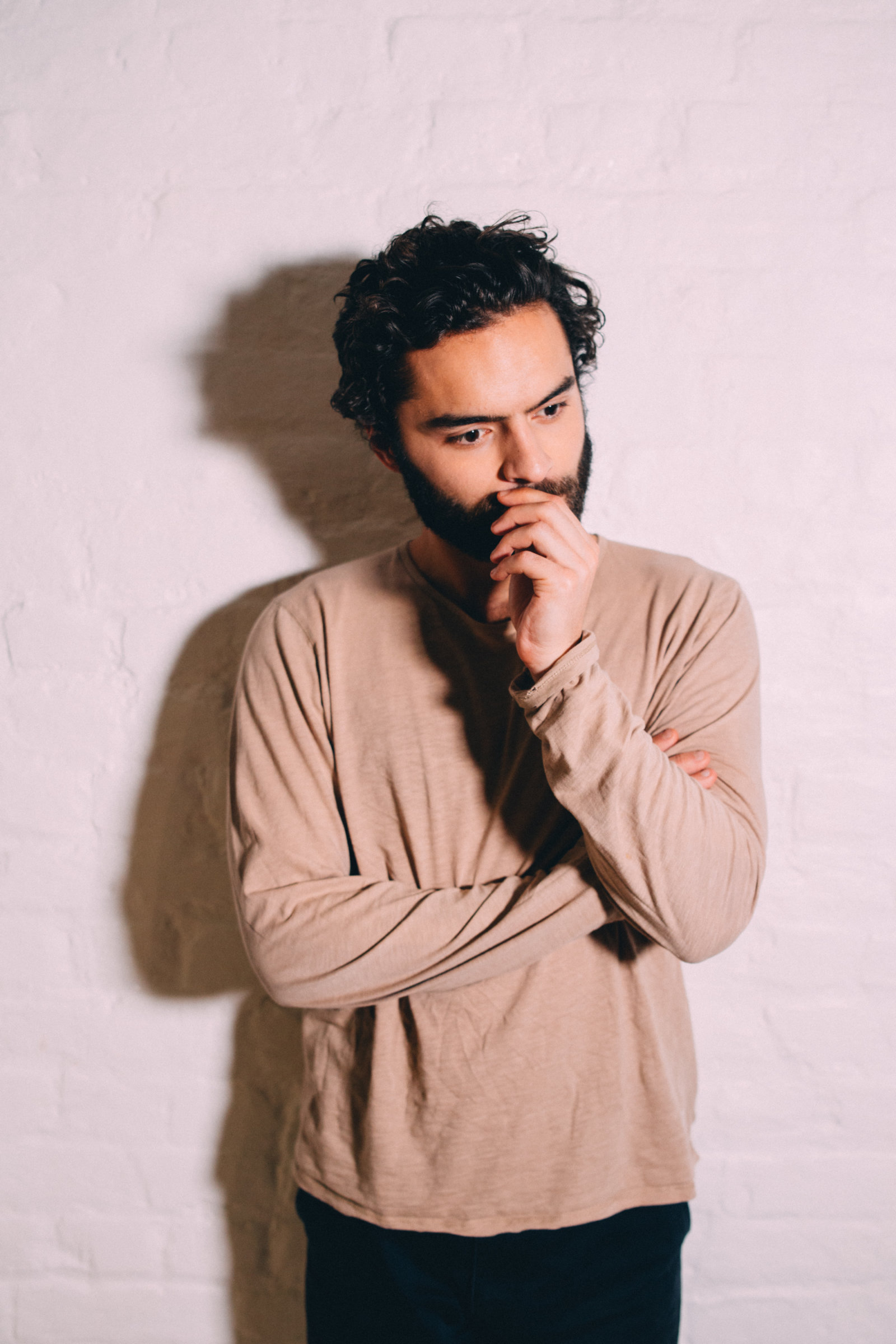
What’s your favorite pizza?
_____
Capricciosa or Margherita, but I think I prefer Roman-style thin pizza. In Italy, I’ll have a Margherita because it’s just better, it’s real. In England, you have to put stuff on the pizza because it’s so crap.
Last TV Series you binge-watched?
_____
“Ozark.”
What’s your happy place?
_____
Wherever my friends are, and my family.
